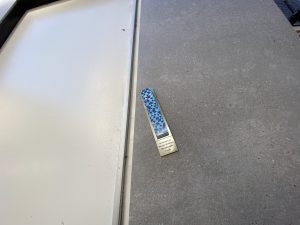In the wake of inflammatory antisemitic comments from hip-hop superstar Ye (formerly Kanye West) and a Holocaust denier dining with the former President of the United States, antisemitism has been thrust back into the public conversation in Washington, D.C.
The DMV — the region that includes D.C., Northern Virginia and portions of southern Maryland — is home to over 297,000 Jewish people, making it the sixth most Jewish metropolitan area in the country. Still, it has not been spared of antisemitic hate crimes; on Nov. 14, there was a particularly egregious incident in Montgomery County, Md., where the phrase “No Mercy for Jews” was spray painted on a fence alongside several crude depictions of people hanging from a noose.
Since 2012, there have been at least 117 hate crimes committed against Jewish people in the District, according to police data obtained and reviewed by The Wash. In that time frame, there have been 23 hate crimes committed against Muslims and two hate crimes against Catholics.
Of the 117 anti-Jewish hate crimes committed in the last decade, 109 — or 93% — have been committed in the city’s populous northwest quadrant, which is home to the Jewish bastions of Georgetown and Kalorama.

Ashley Reichelmann, a professor of sociology at Virginia Tech who has written extensively about hate crimes and race relations in the United States, said incendiary and bigoted statements from figures in pop culture like Ye are so dangerous because they falsely confirm preconceived notions people may have.
“It’s more about them making a statement which might, in some way, jive with a belief that a person already has,” Reichelmann said. “And what it does is it promotes a culture of acceptance that this behavior is simply acceptable.”
Notably, the Metropolitan Police Department did not specify a targeted group for 51% of hate crimes tracked in their database, meaning crimes were reported to and investigated by MPD, but no specific ethnic or racial group was identified as the target. MPD did not provide a reason why so many targeted groups were left blank in their files, meaning the number of religion-related hate crimes could be significantly higher.
According to Hillel, the world’s largest Jewish campus organization, Jewish people often “fear being targeted or isolated by reporting bias incidents.”
Faith Williams, a federal lobbyist for the progressive National Council for Jewish Women, describes herself as an “inside-the-beltway creature” who has been in D.C. for over 15 years. She said while figures like Ye have a significant amount of informal rhetorical power, they don’t actually have much hard political influence.

As a result, elected officials — those with the power to directly influence policy — need to be careful with their words and be thoughtful about the ideas they peddle, she said.
“The way our leaders act and the things they say really matter,” Williams said, “and that goes for every issue, but including antisemitism.”
Elsewhere in the advocacy space, the Anti-Defamation League is on high alert. Meredith Weisel, the organization’s D.C. regional director and longtime DMV resident, said she believes non-Jewish people have merged criticism of the Israeli government — which she sees as legitimate discourse — with outright antisemitism, increasing the preponderance of antisemitic rhetoric.
Instead of civil, political conversation, she says, Jewish students on university campuses are often targeted because of perceived loyalty to Israel.
“You want to have a real conversation about the Middle East and the Israel-Palestine conflict?” Weisel said. “More power to you; let’s talk about the government and all that kind of stuff. But Jewish students are being targeted because of something happening in Israel.”
In Foggy Bottom, there is a significant Jewish contingent, especially around the campus of George Washington University, which boasts over 3,000 Jewish students. Last year, a Torah — a large, ornate scroll containing the Jewish bible — was desecrated inside a fraternity house, and other reports of antisemitism have surfaced in recent weeks.
GW’s Hillel chapter declined to comment on its ongoing initiatives and efforts to deal with antisemitism on campus.















I am a Jewish woman living in Georgetown area in n.w.,dc. I am concerned about the hatred toward Jews by w
religious institutions in the n.w.also . The
Influence of this hate toward our people is powerfully dispersed and vocalized from behind pulpits of all types.
I am greatly uncomfortable with the spread of such negative talk. So the influencers are coming from many avenues, not just politics.